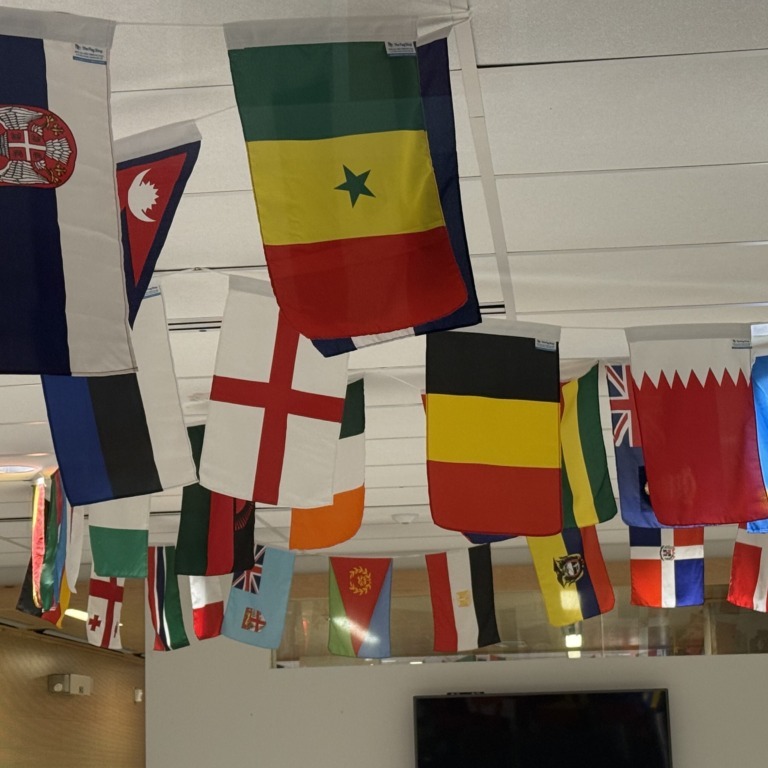
International student enrolment falls for second straight year at Dalhousie
Students share challenges caused by Canada slashing study permits
New preliminary enrolment data from the Association of Atlantic Universities shows that international student enrolment at Dalhousie University is down 22 per cent from last year, affecting some students who relied on fellow international students to help them settle into campus life.
For Lathika Saravanan, a fourth-year commerce student, the support of other international students eased her adjustment to living in Halifax.
“It made me feel safe,” she says. “I actually had people to have relatable conversations with.”
When she arrived in Canada, friends from her high school in Saudi Arabia, who were already studying at Dalhousie, helped her with everything from opening a bank account to finding her way around campus.
Arwa Al Wahaibi, a fourth-year psychology student from Oman, says that while Canadian students are “super nice,” international students easily relate to each other and often form communities of support.
“One thing that you share with another international [student] is that sense of being away from home and trying to make a home here,” says Al Wahaibi. “That’s something hard to grasp if you haven’t left home, if you’re from here.”
Preliminary enrolment data released by the Association of Atlantic Universities on Oct. 15 shows that 2,713 international students are enrolled at Dalhousie, about 14 per cent of the student body.
“These dynamics, precipitated in large part by federal government changes to study permit requirements, are not unique to Dalhousie and are impacting many universities across the region and across the country,” said Mike Fleury, Dalhousie’s senior manager of strategic communications and media relations, in a statement to the Dalhousie Gazette.
In January 2024, Canada’s federal government capped the number of study permits it issued, reducing the number of incoming international students by 40 per cent in its first year.
In January 2025, the federal government decreased the number of permits by an additional 10 per cent. A statement posted to the federal government’s website said the cap was introduced to strengthen Canada’s international student program and reduce strain on the housing market.
The decrease left some international students feeling isolated.
“It’s really nice to have a sense of a community where we’re all going through the same thing,” says Al Wahaibi. “We’re all new here, and we’re trying to make a home within Dalhousie. It feels strange now that it’s decreasing because you don’t have that sense of security anymore.”
Anna Barboza Portela, a first-year science student from Brazil, arrived in Canada two years ago. She relied on international students at her high school for support when dealing with homesickness or issues with her new host family. But since starting at Dalhousie, she has struggled to meet international students.
“I don’t know many international students at Dal,” she says. “I know maybe like five … But I wish there was more.”
John Cameron, an international development professor at Dal, says having international students at the university is beneficial for Canadian students, international students and professors.
“To have students from all over the world in your classroom, and to engage in discussions and learning with them, has a way of opening up everybody’s minds and learning new perspectives and new ways of seeing and being,” he says.
In a statement to the Gazette, Maren Mealey, president of the Dalhousie Student Union, said international students are “unbelievably valued members” of the student community.
“International students play a crucial role in shaping our campus culture, the academic landscape, and our learning environments,” Mealey said in the statement. “A decrease in international student enrollment not only impacts classroom diversity but also the social and cultural well-being of student life.”
Despite the changes, the university remains committed to reaching out to students around the world.
“As we acknowledge the challenges facing the sector, a focused effort is underway to strengthen and grow international enrolment through enhanced outreach, partnerships and support services,” said Fleury. “Dalhousie continues to be a welcoming destination for students from around the world.”






